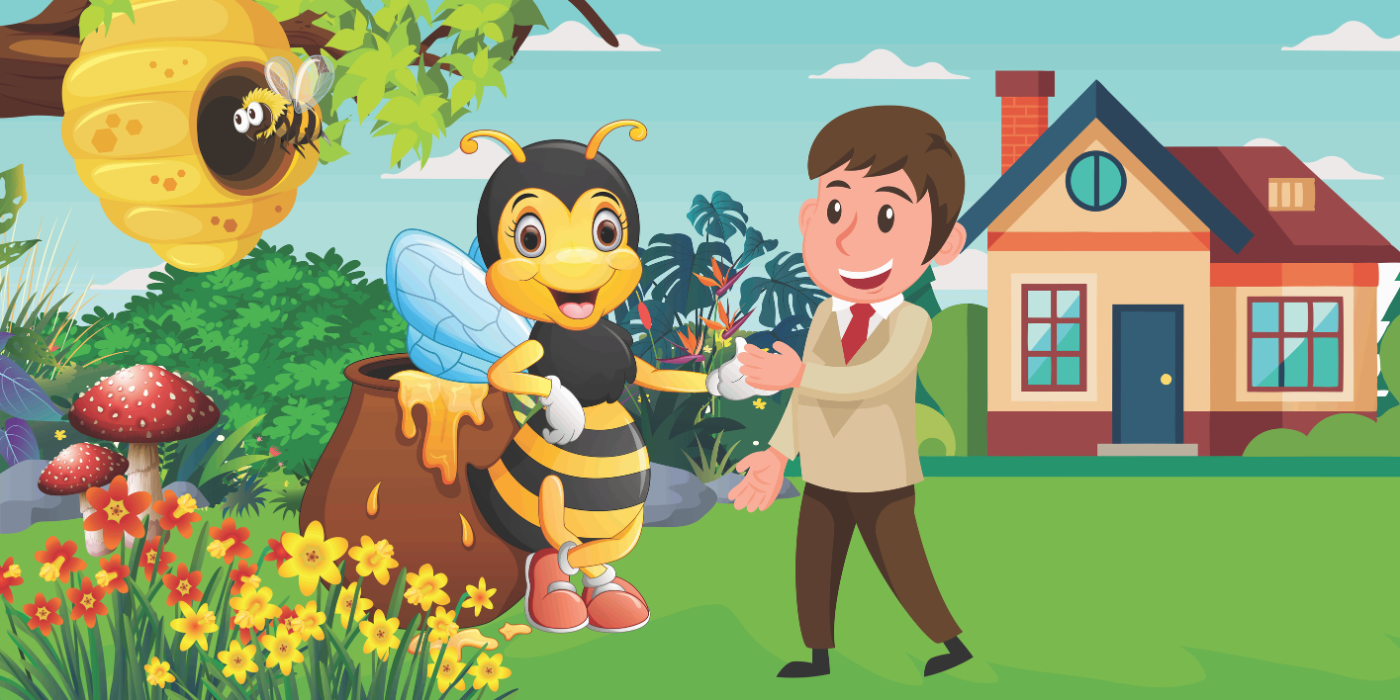
Beekeeping Ethics | Balancing Human Needs with Bee Welfare
Beekeeping is a practice that dates back thousands of years, with humans and bees sharing a mutually beneficial relationship. Beekeepers rely on bees for honey, beeswax, and the essential service of pollination. However, as with any relationship between humans and animals, ethical considerations must be taken into account. How do we balance our needs with the welfare of the bees? This blog explores the ethical issues surrounding beekeeping and offers insights into how beekeepers can ensure they are practicing in a way that is respectful and sustainable.
The Importance of Ethical Beekeeping
Bees play a crucial role in our ecosystem, pollinating many of the crops we rely on for food. In fact, bees are responsible for pollinating approximately one-third of the food we eat. Beyond agriculture, they also contribute to the biodiversity of wild plants. Given their importance, it is essential that we approach beekeeping with care, ensuring that our practices do not harm these vital creatures.
Ethical beekeeping is about more than just producing honey; it is about fostering a healthy relationship with the bees and ensuring that their welfare is prioritized. This includes considering how our practices impact the bees, their colonies, and the broader environment.
Key Ethical Considerations in Beekeeping
Colony Management Practices
One of the primary ethical considerations in beekeeping is how the colony is managed. This includes everything from the size of the hive to the frequency of inspections. Overcrowding, for example, can lead to stress and disease within the colony. Beekeepers should ensure that hives are appropriately sized for the colony and avoid excessive handling, which can disrupt the bees' natural behavior.
Sustainable Honey Harvesting
Honey is a significant product of beekeeping, but it is essential to harvest it sustainably. Bees produce honey as their food source for the winter months. If too much honey is harvested, bees may not have enough to survive, leading to the need for supplemental feeding, which can disrupt their natural diet. Ethical beekeepers harvest honey in moderation, ensuring that the bees have enough to sustain themselves.
Use of Chemicals
Beekeepers often use chemicals to manage pests and diseases within the hive. While these chemicals can be effective, they can also harm the bees and the environment. Ethical beekeepers seek to minimize the use of chemicals, opting for natural methods of pest control whenever possible. This may include using essential oils, organic treatments, or integrated disease and pest management techniques that reduce the need for chemical interventions.
Queen Rearing and Replacement
The practice of rearing and replacing queen bees is another area where ethical considerations come into play. In commercial beekeeping, queens are often replaced every one to two years to ensure high productivity. However, this practice can disrupt the natural order of the colony and may contribute to stress and disease. Ethical beekeepers allow queens to live out their natural lifespan and encourage the colony to rear their own queens when necessary.
Supporting Bee Diversity
The focus on specific breeds of bees for commercial purposes can lead to a lack of genetic diversity, making bees more susceptible to disease and environmental changes. Ethical beekeepers support bee diversity by encouraging the breeding of local strains and avoiding the importation of non-native species. This helps maintain a healthy and resilient bee population.
The Impact of Ethical Beekeeping on the Environment
Ethical beekeeping extends beyond the hive to include considerations of how our practices impact the broader environment. For example, the use of pesticides in agriculture has been linked to the decline of bee populations. Ethical beekeepers advocate for sustainable farming practices that protect pollinators and the ecosystems they depend on. This may include supporting organic agriculture, planting pollinator- bee friendly gardens, and reducing the use of harmful chemicals.
Additionally, ethical beekeeping practices can contribute to the preservation of natural habitats. By encouraging the growth of native plants and supporting diverse ecosystems, beekeepers can help create environments where bees and other pollinators can thrive.
The Human-Bee Connection
Beekeeping is not just about the products we can obtain from bees; it is also about the connection between humans and nature. Ethical beekeeping fosters a deep respect for bees and their role in the ecosystem. It encourages beekeepers to observe and learn from their bees, understanding their needs and behaviors to better support them.
This connection can also lead to a greater awareness of environmental issues and a commitment to sustainability. Beekeepers who prioritize the welfare of their bees often become advocates for broader environmental causes, recognizing that the health of the bees is intrinsically linked to the health of the planet.
Balancing human needs with bee welfare is at the heart of ethical beekeeping. By adopting practices that prioritize the health and well-being of bees, beekeepers can ensure that their activities are sustainable and respectful. This approach not only benefits the bees but also contributes to the overall health of our ecosystems and the planet.
Ethical beekeeping is a responsibility that comes with the privilege of working with these incredible creatures. It is a commitment to ensuring that our practices are in harmony with nature and that we are doing our part to protect and preserve the essential role that bees play in our world.



Leave a comment